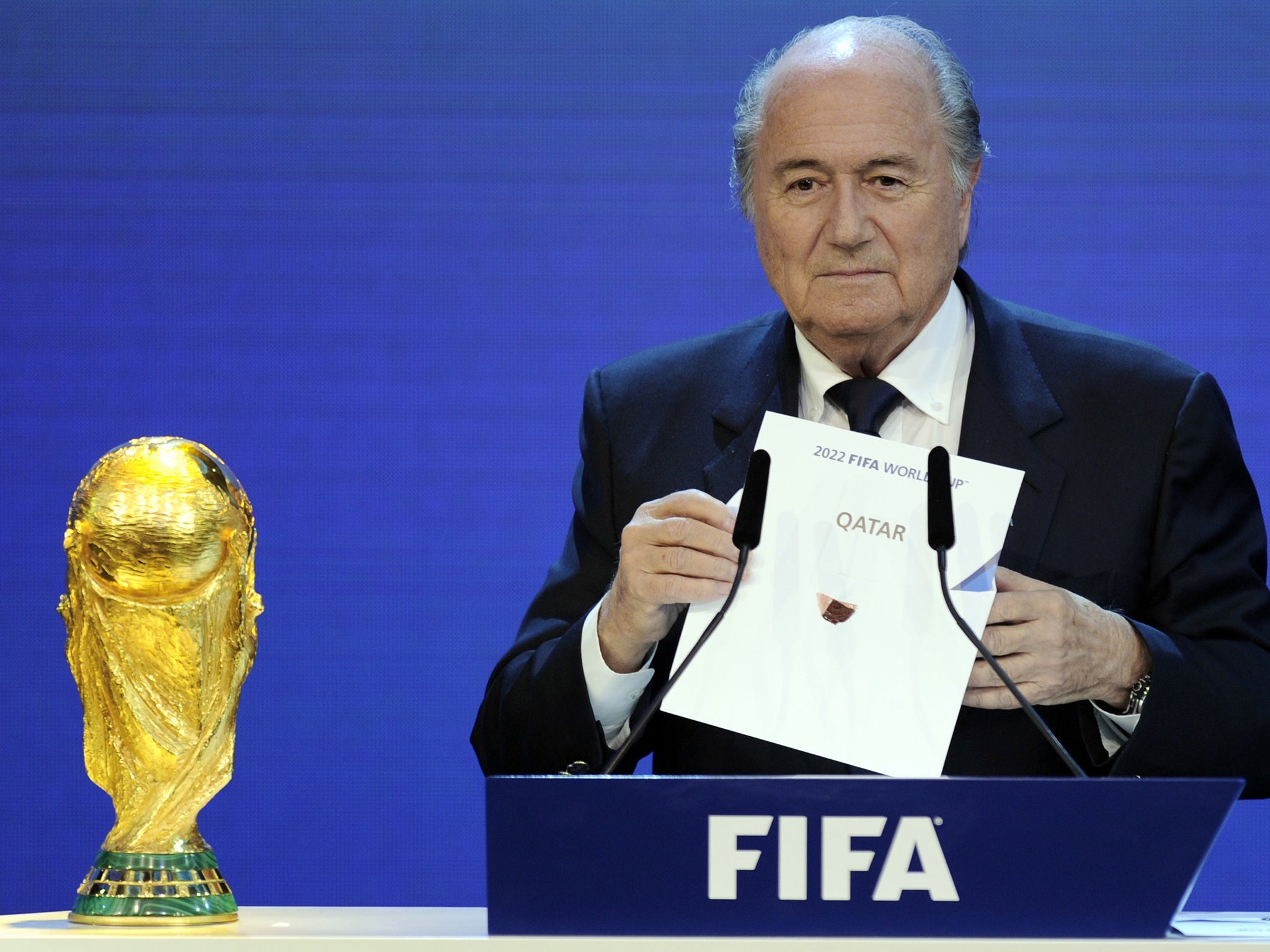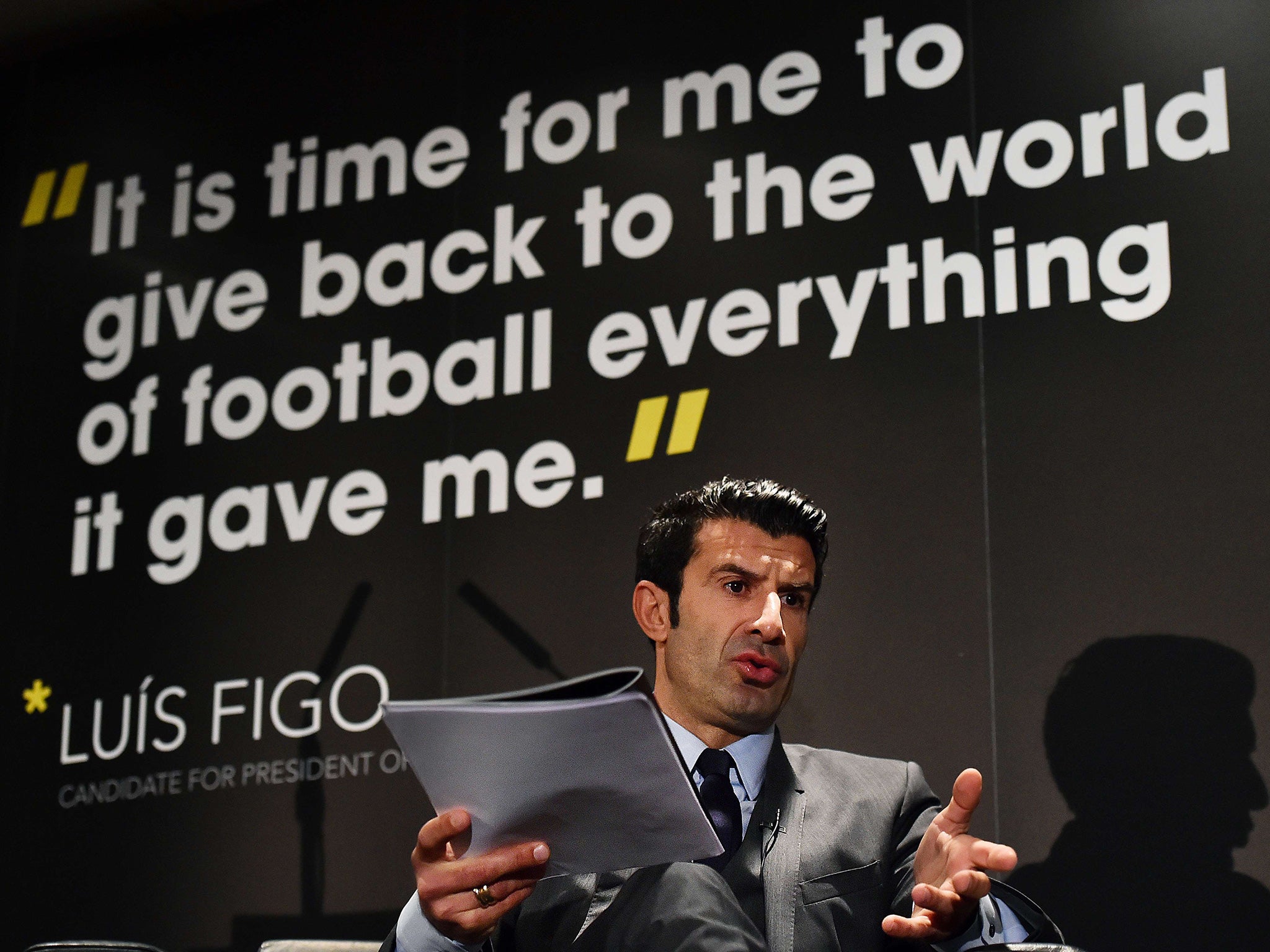A 48-team World Cup played in two continents, the introduction of sin-bins, a return to the “old” offside rule and a large and immediate cash windfall for almost every single nation on the planet were just a few of the pledges on offer should Luis Figo replace Sepp Blatter as the next Fifa president.
“I am not the kind of man who sits on the side and refuses to act,” Figo told journalists at Wembley Stadium. “It is time for me to give back to the world of football everything it gave me.”
At the expensive looking campaign launch in London, organised by the same public relations company as Uefa and Jordanian Prince Ali Bin al Hussein, who is also standing for Fifa president with European backing, the former Barcelona, Real Madrid and Portugal winger had to confirm that he was “his own man” and was funding his campaign himself.
Blatter’s three opponents in the May election, the other being the Dutch football administrator Michael van Praag, appear increasingly to be part of a co-ordinated European strategy that will end with only one of the three men standing in opposition to Blatter.
Figo is a credible candidate and, unlike the Jordanian prince, offered clear policies in his manifesto as well as the usual goals of greater transparency and restoring the credibility of Fifa.
One of the main criticisms levelled at the world governing body is its vast cash reserves of $1.5bn (£975m), which it claims is needed as a contingency, given its chief source of income, the World Cup, only comes around every four years. Figo said he had “spoken with experts” and been advised that $500m (£325m) is needed, and promised to return $1bn (£650m) to Fifa’s 209 member nations. “It is not Fifa’s money, it is their money,” he said.
His chief promise was to devote more money to grassroots football, to get more young boys and girls playing the game, by distributing $2.5bn (£1.62bn) a year for “better infrastructure and more training”.
This would be funded by a bizarre proposition to expand the World Cup from 32 to 48 teams, with two separate 24- team tournaments played separately on different continents, combining later on for the knockout stages. This would swell Fifa’s coffers significantly but making the event bigger and more expensive to host flies in the face of current thinking – that staging the Olympics and the World Cup must be made cheaper.

To win the race, anyone defeating Blatter will need to receive the votes of 105 of the 209 members. Given the unanimous support that the African federation’s 56 members have already pledged to give the Swiss and the substantial backing he will receive from Asia and Latin America, he is all but impossible to defeat.
Even so, the sight of a genuine footballing legend promising to restore Fifa’s image and credibility is refreshing and makes the idea of four more years of Blatter, who presided over the award of the 2022 World Cup to Qatar, seem even more unpalatable.
“I respect President Blatter as I respect all the other candidates,” Figo said. “He has been leading the organisation for many years and has made many positive achievements for football, but a point is reached where change is needed.”
Figo’s manifesto key proposals
1 Expand the World Cup to 40 or even 48 teams, to be held across two continents
2 Use half of Fifa’s $2.5bn (£1.62bn) four-year revenue to fund grassroots football
3 Redistribute $1bn (£650m) of Fifa’s $1.5bn (£975m) cash reserves to the 209 national federations
4 Increase the use of technology, including the use of sin-bins
5 Revert back to old interpretation of the offside rule, where a player is judged offside whether directly involved or not

Join our commenting forum
Join thought-provoking conversations, follow other Independent readers and see their replies
Comments